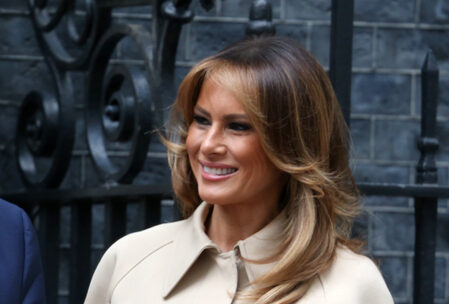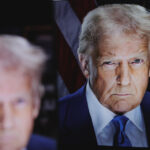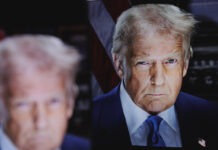Representative Jasmine Crockett of Texas created a stir during a House Judiciary Committee hearing Wednesday, June 25, 2025, by questioning whether First Lady Melania Trump deserved her special immigration visa. The Democratic congresswoman criticized the Trump administration’s immigration policies while targeting the first lady’s path to American residency.
During the hearing on restoring integrity to the visa process, Crockett accused Republican colleagues of ignoring problems with the president’s family while supporting tough immigration enforcement. She pointed to what she called unfair treatment in how visa rules are applied and discussed.
Crockett focused on Melania Trump’s 2001 EB-1 visa, also known as the “Einstein visa,” which is intended for individuals with extraordinary abilities. The Texas representative questioned whether the former model from Slovenia met the tough requirements for this elite immigration status.
Crockett reminded the committee that Melania, the first lady, was a model. When Crockett mentioned model, she stressed that she was not talking about Tyra Banks, Cindy Crawford, or Naomi Campbell-level, but that she had applied for and was given an EB-1 visa. She emphasized that the requirements for this visa category are incredibly demanding.
The Texas representative outlined the typical qualifications needed for an Einstein visa. According to Crockett, candidates should possess significant achievement, like being awarded a Nobel Peace Prize or a Pulitzer, being an Olympic medalist, or having other sustained extraordinary abilities and success in sciences, arts, education, business or athletics. She observed that the first lady had none of those accolades under her belt when she received her visa.
Before discussing Melania Trump, Crockett criticized the current administration’s immigration policies. She condemned what she described as harsh policies targeting people with legal visas and American citizens. The representative argued that real integrity in the visa process does not involve targeting individuals based on their social media posts or using unmarked vehicles in raids.
Crockett ended her comments about the first lady’s visa with sharp criticism. “It doesn’t take an Einstein to see that the math ain’t mathin’ here,” she said, using language that has become her trademark in congressional hearings.
The hearing took an unexpected turn when Alex Nowrasteh from the Cato Institute tried to defend the first lady with humor. Nowrasteh, who was testifying as a witness, jumped in with a comment about Melania Trump’s qualifications.
“Not everybody could marry Donald Trump, and I think that’s quite an achievement, so I think she deserves credit for that,” he said, adding: “Nobody up here could have done it.” His comment got an immediate response from Crockett.
Crockett responded to Nowrasteh’s defense quickly. “You sure are right, I couldn’t do it,” she replied. The exchange showed the tense atmosphere around discussions of the Trump family’s immigration history.
Melania Trump first came to the United States in 1996 on a tourist visa before getting work visas for skilled professionals. She was building a modeling career in New York City when she met Donald Trump at a party in 1998. This meeting considerably raised her public profile. The future first lady got her EB-1 visa and legal residency in 2001.
According to State Department numbers reported by The Washington Post, only five people from Slovenia got green cards through the EB-1 program in 2001, the same year Melania Trump received hers. This rare achievement has led to ongoing questions about whether her qualifications truly met the extraordinary standards required.
The EB-1 visa requires individuals to demonstrate evidence of a major award or meet three of ten specific criteria that prove excellence in their field. These standards include coverage in major publications, original contributions to a field, and work shown at artistic exhibitions. Before applying, Melania Trump had appeared on magazine covers including British GQ and other publications.
Michael Wildes, Melania Trump’s immigration lawyer, has defended her visa history against similar criticism. In 2018, he stated that Mrs. Trump had obtained her green card legally and was eligible for the extraordinary ability designation. Wildes said no further comment would be made to protect the first lady’s privacy.
Crockett’s comments caused strong reactions on social media, with supporters praising her for exposing unfair treatment in immigration enforcement while critics accused her of personal attacks on the first lady. The controversy has brought back broader debates about fairness in high-profile immigration cases.
The hearing took place as the Trump administration continues to implement significant immigration policies, including orders targeting university visa programs and travel bans affecting several countries. President Trump signed an order on June 4 targeting Harvard University’s student visa program, citing national security concerns about Chinese students. Later in June, the administration introduced broad visa and travel restrictions.
The controversy shows ongoing political tensions over immigration policy and the attention paid to the Trump family’s own immigration histories. Crockett has become one of the most outspoken Democratic critics of the administration’s immigration approach, frequently challenging Republican colleagues during congressional hearings with pointed questions that often generate significant media attention.











